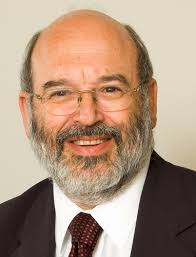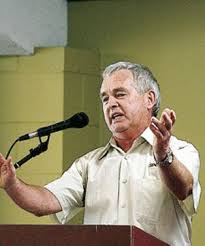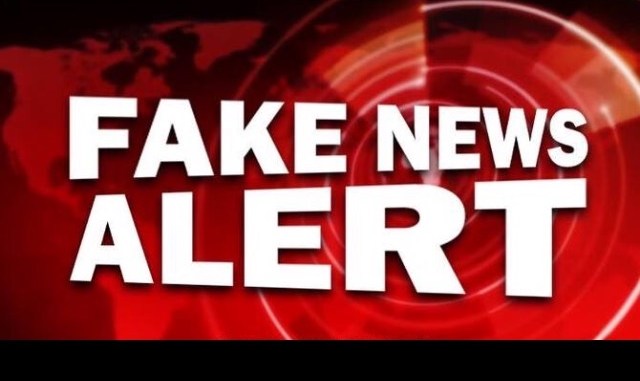
Sir Peter Gluckman, the Prime Minister’s chief science adviser has released a report stating that for the last 20 years, the media narrative about crime and punishment has been almost entirely driven by dogma. (Link to his full report). More specifically, he said:
“We keep imprisoning more people in response to dogma not data, responding to shifting policies and media panics, instead of evidence-based approaches to prevention, intervention, imprisonment and rehabilitation”.
What does he mean by this? Google defines dogma as “a principle or set of principles laid down by an authority as incontrovertibly true.†The Cambridge dictionary defines it as “a fixed, especially religious belief or set of beliefs that people are expected to accept without any doubtsâ€.
Dogma & erroneous beliefs
Here are three of the main erroneous beliefs Gluckman says so many Kiwis have accepted without question:
1) “Crime is caused by individuals who need harsh punishmentâ€
Gluckman says the reality is that “crime is a complex issue with multiple driving factors related to individual, social and systemic contexts†(p.14). He points out that “childhood trauma is associated with poor mental health†and “91% of people in prison in New Zealand have a mental illness or substance use disorder†(p.16).
Gluckman notes that in prison, “mental health and substance-use disorders often go undetected and under-treatedâ€. He adds “There is no evidence of the supposed deterrent effect of harsher sentences†(p. 10).
2) “Crime is increasing†(he says 71% of Kiwis believe this)
The reality is that “New Zealand’s recorded crime levels are the lowest seen since the late 1970s†(p.5)
“As people have limited personal experience of crime, news media depictions can disproportionally affect their views. Media coverage focuses primarily on homicides and other rare drug, sex, or violence related crimes, especially involving high-profile or high-status individuals or children (whether as victims or perpetrators)â€.
“Crime reporting makes up to 70% of some days news coverage in the New Zealand herald and averages 31% of daily news coverage … Data on the actual patterns and causes of crime are rarely covered not communicated by officials in newsworthy ways†(p. 14). See also: New Zealand media grossly exaggerates the level of crime in society
3) “Crime will fall by putting (more) offenders into prisonâ€.
Gluckman points out “This does not lead to lowered crime rates…(as) it is well established that incarceration rates are predominantly independent of crime rates†(p.5).
“Prison growth has been driven largely by tough on crime policies from successive administrations on both sides of the political spectrum encouraged by vocal, professional lobbyists… Crime rates are falling but these are not related to prison policy†(p.9)
Rather than reducing crime, Gluckman says the evidence suggests prisons are little more than “extremely expensive training grounds” for further offending.

Who is the authority figure?
So who is the authority figure espousing these myths that New Zealanders have been gullible enough to believe? Gluckman doesn’t mention him by name but the answer is obvious – Garth McVicar, a farmer from the Hawkes Bay who has no qualifications in law or criminology or anything else related to penal policy.
According to Gluckman, the New Zealand media has been feeding us McVicar’s simplistic, one-eyed solutions to crime and punishment for twenty years. He describes in detail how ‘penal populism,’ driven by (McVicar and) the media, has led politicians to pass more tough on crime laws and build more prisons. In his view, all this media attention has led a large proportion of the public to swallow this belief system hook, line and sinker.
Much of Gluckman’s report is focused on the growing cost of locking so many people up. He is clearly horrified at the “extremely high cost†of using prisons as the primary response to crime and describes this process as “a waste of public resources†(p.12).
The definition of fake news
So have the media been presenting us with fake news? Wikipedia describes fake news as:
“A type of yellow journalism or propaganda that consists of deliberate misinformation or hoaxes spread via traditional print and broadcast news media or online social media.â€
 Yellow journalism describes news outlets:
Yellow journalism describes news outlets:
“that present little or no legitimate, well-researched news and use eye-catching headlines for increased sales.â€
Does Gluckman call the dogma and beliefs espoused by Garth McVicar and the New Zealand media fake news or yellow journalism? Not in those words exactly – he’s far too diplomatic. But that’s clearly what he’s saying.
The point is fake news was not invented by Donald Trump – New Zealand has been exposed to Garth McVicar’s version of it for over 20 years. It’s time to get back to reality and look at the evidence – evidence which is described in detail in Gluckman’s report.
So if you think he’s right; and if you agree it’s time to base justice policy on data rather than dogma, then we clearly don’t need the 1,500 bed mega-prison proposed at Waikeria. Here’s your chance to tell the Government what you think. Send them this email.
